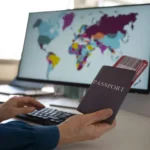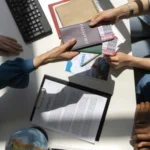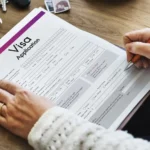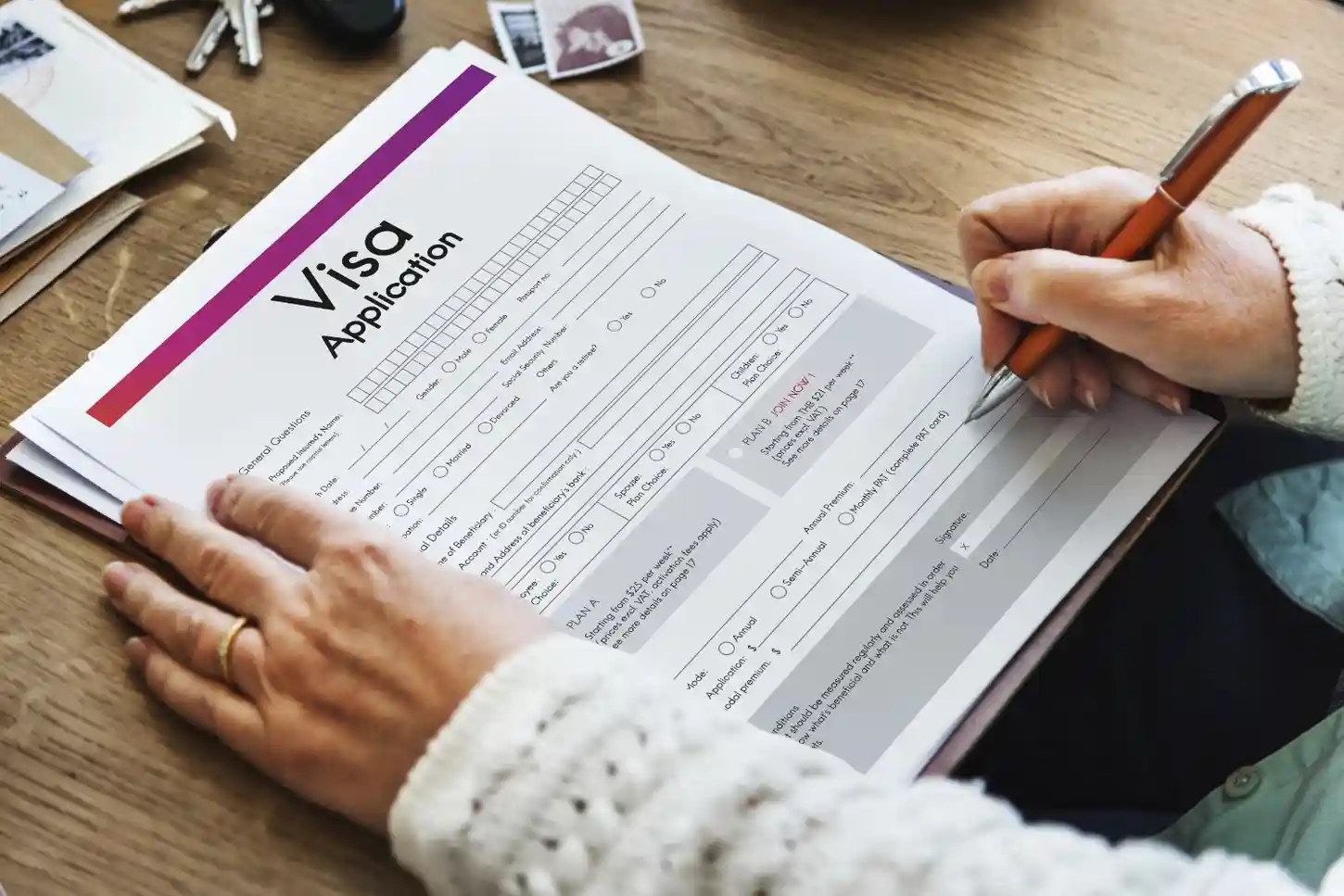Why is it important to fill out a visa application form?
A visa application form is more than just paperwork—it’s your official request to study abroad and the first impression you make on consulates and immigration officials. Filling it out carefully shows that you are organized, responsible, and serious about your studies. Even small mistakes or inconsistencies can raise doubts about your application, potentially causing delays or even rejection.
Filling out the form correctly:
- Shows consulates and embassies that you are serious— Giving accurate and consistent information shows that you are a real student and serious about your plans to study abroad.
- Ensures smooth visa processing – Consulates can process your application faster without asking for more information. If you fill out all fields correctly and organize the supporting documents properly.
- Prevents unnecessary delays or rejections – If you make mistakes like wrong dates, information that doesn’t match, or missing signatures. Your visa application may take longer to process or even be denied.
An overseas education consultancy can help you with every part of this process. They carefully look over your application. Make sure that all the information matches your supporting documents, and give you expert advice on what each country needs. This professional help lowers the number of mistakes, raises the chances of getting your visa, and makes the whole process much less stressful. So you can focus on getting ready for your exciting trip abroad.
Country-Specific Requirements for Student Visas
It’s important to know the visa rules and procedures for each country so that your application goes smoothly.
- USA (DS-160): Students need to fill out the DS-160 online form. Upload a recent passport-style photo, pay the SEVIS fee, and set up a visa interview. Paying attention to the details is very important because any mistakes can slow down the process.
- UK (Tier 4): To get a Tier 4 visa, you need to fill out an online application. Get a Confirmation of Acceptance for Studies (CAS). Show that you have enough money, and pay the healthcare surcharge. Accuracy speeds up the approval process and lowers the chance of mistakes.
- Canada (IMM 1294): Students can apply online or on paper. You need an acceptance letter, proof of funds, and biometrics to apply. Following all the steps carefully will help you avoid delays.
- Australia (Subclass 500): You need to fill out an online form, get a Confirmation of Enrolment (COE). Show proof of income, and have health insurance to get this visa. It’s very important to submit all of the supporting documents correctly.
- Europe (Schengen countries): To get a Schengen student visa. You need to show proof of enrolment, proof of funds, valid health insurance, and a filled-out visa form. There may be other specific requirements for each country.
It can be challenging to understand the specific rules for each country. An overseas education consultancy can help you fill out all the forms and supporting documents correctly, meet all the deadlines, and avoid common mistakes. This will speed up the application process and make it less stressful.
Common Mistakes to Avoid in Visa Applications
Even small mistakes on your visa application can slow things down or even get it turned down. Every little thing matters because consulates use it to check. If you are a student and what you want to do.
- Missing or inconsistent personal details: If your name, date of birth, or documents don’t match. It can make people question who you are.
- Invalid, expired, or incorrectly formatted documents: Your application may be sent back if your certificates, passports, or scans are out of date or not formatted correctly.
- Ignoring photo or signature guidelines: Your application could be turned down if your photos or signatures don’t meet embassy standards.
- Incomplete financial proof: If you don’t have your bank statements, pay stubs, or tax returns. Consulates may doubt your ability to pay for school and living expenses.
An overseas education consultancy can help you with every step. Check that your documents are correct, and make sure you meet the requirements of the country. You want to study to help cut down on mistakes, speed up processing, and make. It is more likely that your visa will be approved without any problems.
Tips for Successfully Completing Your Visa Form
Getting a student visa can be challenging, but planning ahead makes it easier. Your visa application is your first impression to consulates—it shows that you’re responsible, organized, and serious about studying abroad.
Here are some helpful hints to make sure your application goes well:
- Choose the right visa: Different countries have different types of visas depending on how long and what kind of course you are taking. If you choose the right one, your application will be processed quickly.
- Get your papers in order: Before you begin your application, gather all key documents like your passport, academic transcripts, and income proof. Preparing early saves time and helps avoid last-minute stress.
- Check for accuracy: Ensure the information in your application matches your supporting documents. Even small errors, like name misspellings or incorrect dates, can cause verification issues.
- Make copies: Always have both a digital and a paper copy of your completed application and other documents. This makes it easier to go back and answer embassy questions later.
- Get professional help if you need it: If you’re unsure about any part of the process. Consult an overseas education expert. They’ll review your documents and ensure your application meets all country-specific requirements.
Following these tips can help you avoid mistakes, speed up the process. And improve your chances of getting your visa approved on time.
Rao’s Edu is here to help you every step of the way as you study abroad. We make the process easy, quick, and stress-free by helping you fill out your visa application form for your country and organize your paperwork. You can avoid making common mistakes and get closer to your dream of studying abroad with the help of an expert.







